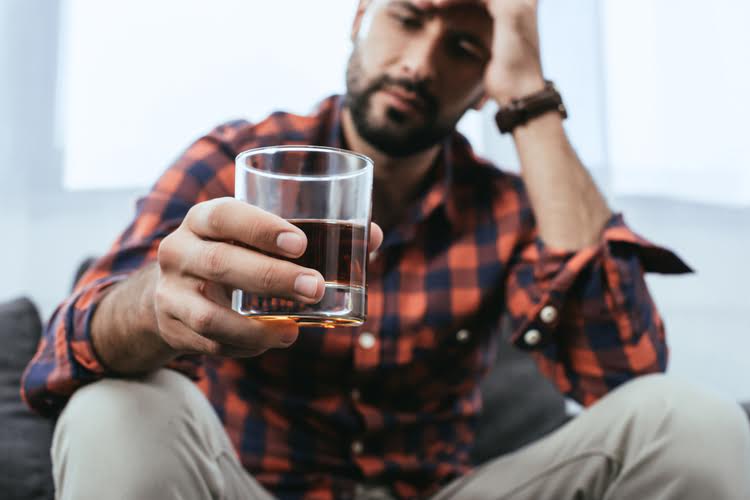Understanding the relationship between alcohol and blood thinners is essential for individuals who are prescribed these medications or are at risk of blood clots. These medications work by interfering with the body’s clotting process, making it more difficult for blood to clot. Alcohol can counteract or intensify the effects of these medications, making blood either less likely or more likely to clot than intended. Moreover, alcohol can affect how long blood thinners stay active in your body, potentially extending their impact and increasing bleeding risks. Since the liver is central to processing both alcohol and blood thinners, liver damage from heavy drinking can further complicate how these drugs work.
Lifestyle Quizzes

These professionals can provide you with tailored advice that is specific to your health history, current medications, and specific anticoagulant. Together, you can devise a game plan for managing social situations where alcohol may be present. Always consult with your healthcare provider before consuming alcohol while taking blood thinners. They can provide specific guidance based on your individual circumstances and medications.
- They may refer to them as blood thinners, anticoagulants, or antiplatelet drugs.
- While many people take low-dose aspirin daily to help prevent cardiovascular events, mixing aspirin with alcohol increases the odds of stomach irritation, ulcers, and bleeding.
- Your healthcare team is your best resource when it comes to navigating the complexities of alcohol while on blood thinners.
- Physicians can provide personalized advice based on your individual circumstances.
- Light beers, wine spritzers, or diluted cocktails can be a safer bet than hard liquor or sugary cocktails packed with mixers.
Signs of Heroin Addiction: Physical, Behavioral, & Psychological Indicators
- You should not mix Pradaxa and alcohol unless your doctor has specifically said this is OK.
- However, it’s not only binge drinking that poses a risk; even moderate, daily consumption has been linked to an increased likelihood of developing atrial fibrillation over time.
- These factors can influence how alcohol affects the viscosity or thickness of blood.
- The J-Curve DebateYou may have heard references to a “J-curve” linking moderate alcohol usage to lower rates of coronary artery disease.
These dynamics underscore that moderate or low-level consumption must be carefully balanced, especially in individuals with preexisting heart conditions. Platelet Function ModulationOne of the main ways alcohol can seemingly act as a blood thinner is by modulating platelet activity. Studies have shown that a small or moderate amount of alcohol (for example, a single glass of red wine) can reduce platelet aggregation. Platelets are the tiny cellular fragments that bind to vascular tears, forming the initial “plug” in clot formation. When platelets aggregate less aggressively, the early stage of clotting becomes less robust, thus diminishing the potential for clot formation.
Blood Thinner Drugs
The answer might depend on your doctor’s recommendations, but, in short, you should limit your consumption and never binge drink. It’s a question that many patients on anticoagulant therapy frequently ask. Balancing lifestyle choices with medical treatments can be challenging, and understanding how alcohol interacts with blood thinners is crucial for maintaining your health. Ultimately, anyone who is taking any kind of blood-thinning medication should speak with their doctor before mixing it with alcohol. The different risks that are present will vary based on each individual, and someone who has not spoken with their doctor can have risks they don’t know about.
What are the Risks of Combining Ativan with Blood Thinners and Alcohol?

Alcohol consumption may decrease the amount of fibrinogen in the blood. The blood thinners and alcohol liver produces this protein, which plays an important role in controlling blood flow and promoting blood clotting. It’s not recommended that you start drinking alcohol if you don’t normally. Having the restraint to consume only moderate amounts of alcohol may be challenging for some individuals.
The Recovery Village Indianapolis offers medical detox programs and inpatient rehabilitation services designed to help you overcome alcohol dependence. Contact our caring Recovery Advocates today to discover how we can support you in building a healthier, alcohol-free future. Regardless of the specific blood thinner, avoiding alcohol is generally the safest approach. Individual factors vary, drug addiction treatment so consult your doctor for personalized guidance.

Can I drink alcohol while taking blood thinners?
Research suggests that certain components in alcoholic beverages, such as polyphenols found in red wine, may have anticoagulant properties. These properties can potentially help prevent the formation of blood clots that can lead to serious conditions like stroke or heart attack. By understanding the basics of blood thinning and what constitutes a blood thinner, we can further explore the effects of alcohol on blood clotting. If you have concerns about alcohol consumption and its effects on your health, it is always advisable to consult a healthcare provider for personalized recommendations.
